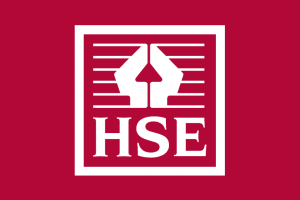Failure to support women’s enterprise could lead to ‘catastrophic economic impact’

Some of the UK’s leading voices in women’s enterprise have come together in a new report to say that current government policy has failed to recognise the additional challenges faced by women-led businesses.
As the Government and local authorities launch campaigns to ‘Build Back Better’ and help the UK’s economy recover and grow in a sustainable way post-COVID-19, experts in business and academia say more needs to be done to support women’s enterprise and avoid a “catastrophic” social and economic end to 2020.
The Women’s Enterprise Policy Group (WEPG) has today (August 11) launched a ‘Framework of Policy Actions to Build Back Better for Women’s Enterprise’ which aims to address the gaps in COVID-19 enterprise support for women.
Evidence from the report indicates that women face a “tsunami” of job losses and business closures, unless the Government develops enterprise policy that is productive and fair for women.
The report outlines how current policies have failed to reflect the extra challenges that women entrepreneurs face – including childcare responsibilities, gender bias and access to finance – and how the Government has failed to introduce measures to facilitate their survival and growth.
The WEPG is a national coalition of leading women entrepreneurs, researchers, business support providers and social entrepreneurs. The group develops policy calls based on the latest evidence and years of experience supporting women’s enterprise creation and growth.
The group is now urging the Chancellor to bring them to the policy table to help shape policy that ‘Builds Back Better’ for women entrepreneurs, for the economy, and for society.
Prof Julia Rouse, co-chair of the WEPG and Professor of Entrepreneurship at Manchester Metropolitan University, said: “As our report shows, women running businesses have faced acute pressures during COVID-19.
“We know that women tend to trade in sectors that do more face-to-face work – for example, as carers, in hospitality and tourism or as beauticians – and that means their trade is only coming back slowly and is vulnerable to local lockdowns.
“Add to this school and nursery closures, and the threat of ‘bubbles’ and consequently support networks bursting when these re-open fully, and you can see the scale of the challenge.
“What is more, many women are excluded from proper income protection due to gaps in current schemes.
“The Government is facing legal action for disadvantaging self-employed women who took maternity leave in years prior to the pandemic under the Self-Employment Income Support Scheme.
“Looking at the picture for women who are directors of small firms, the main form of support they have been offered is through loans, but without any targeted marketing to women business owners who are typically more cautious about risking family security via business loans.”
She added: “The question we now must ask is whether the Chancellor fully understands the extent of these issues and whether he is committed to supporting women’s enterprise?
“There is already a huge gender gap in entrepreneurship across the UK – only about a third of all small firms are led by women.
“Equality simply cannot wait until the pandemic passes because COVID-19 is causing further inequality.
“Now is the time to develop practical policy that supports women business owners – any later could well be too late. That’s why we are calling on Rishi Sunak to bring us to the policy table to avoid the disaster of thousands of failed businesses at Christmas time and catastrophic economic impact.”
Helen Burkinshaw, programme lead for the WEPG at Liverpool-based social enterprise The Women’s Organisation, said: “There is compelling evidence that the UK’s economic recovery will be severely hampered if women’s enterprise development is not reflected in government policy and investment.
“There is a real risk of the UK missing out on the immense economic opportunities that female-led businesses offer, particularly in terms of new business start-ups and growth, products and service innovation, internationalisation, and new employment creation.
“Now is the time and the opportunity for government and devolved administrations to recognise the needs of women business owners and their economic potential for the rebuilding of the UK’s economy.
“It is key that women’s enterprise advocates, like the WEPG, are involved in policy development and have the full support of government.”







